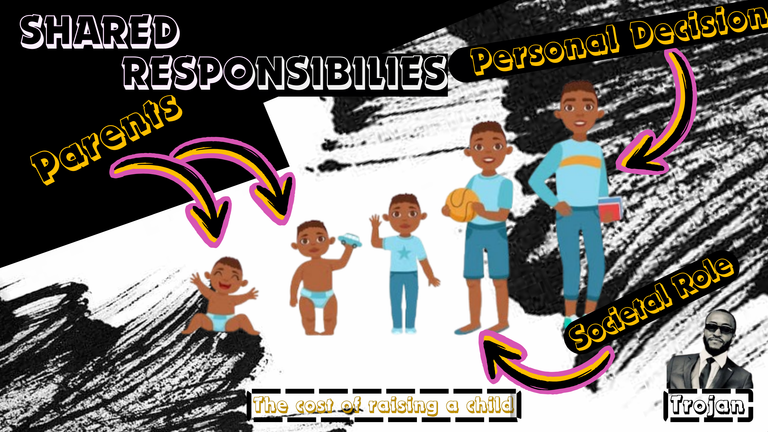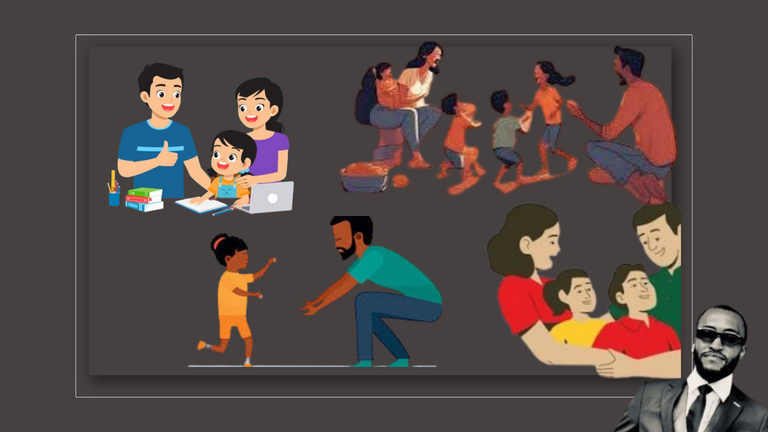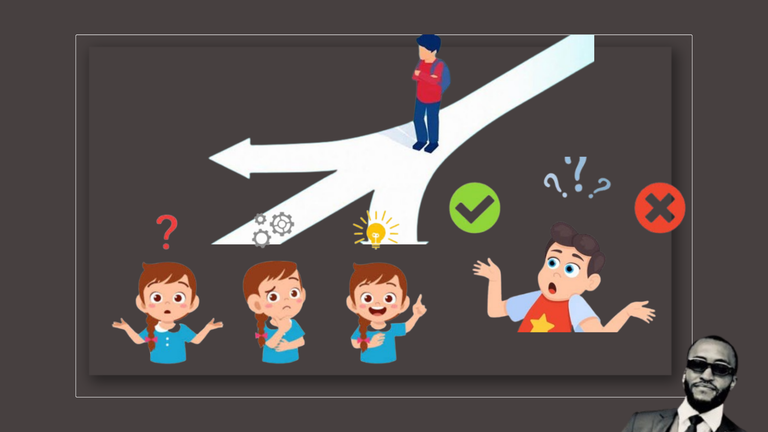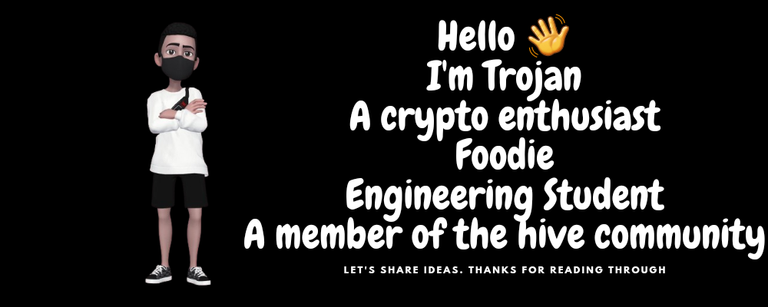Whose Fault Is It When a Child Commits a Major Offence?
Based on the prompt of the hive learners for this week, we will be looking into the above question.
Let me start by saying this, back in the days (very far back in the days), I was told that parenting wasn't just left to the immediate parent. The entire society is in charge of bringing up a child. I guess that was why values were built because children were always conscious of how they lived and behaved because they knew their parents' eyes were everywhere. If they found them misbehaving, someone could take it upon themselves to discipline them before their parents come for a 2nd round.

But as of now, when a child commits an offense against society, the question of who is responsible becomes a major issue and an intense debate. Is it the parent’s fault for not providing an adequate upbringing, or is it the child's own decisions that led them down a troubling path? Before I continue, let us note that a child's brain is still at the developing stage where everything around him/her influences the character at the end. Multiple factors help shape a child’s development such as parenting, the child’s determination, and the immediate societal influences all these a catalysts in defining a child's behavior.
🅿🅰🆁🅴🅽🆃🅰🅻 🆁🅴🆂🅿🅾🅽🆂🅸🅱🅸🅻🅸🆃🆈

The role of parents in shaping a child’s character cannot be understated. Parents are the primary agents of socialization. Since they are the child's first contact, they influence how a child perceives or sees right and wrong, how they handle emotions, and how they interact with the world. A child’s moral compass, self-control, and even emotional intelligence are often deeply influenced by the environment created at home. Therefore, when a child commits a serious offense, such as a crime or deviant behavior, it is reasonable to question the role of the parents. Even the Bible said, "Train up a child in the way he should grow so that when he is old, he shall not depart from it".
For example, research shows that consistent discipline(omo, I was very much disciplined at home), emotional support, and positive reinforcement can significantly reduce the chances of delinquent behavior. A lack of these elements can increase a child’s likelihood of engaging in antisocial or criminal activities. If parents fail to establish boundaries or pattern-appropriate behavior, the child may struggle to understand the consequences of their actions. In this sense, the home environment, shaped largely by the parents, sets the stage for a child’s future behavior.
It is also worth noting that parents who are overly enforces discipline or abusive may foster resentment or rebellion in their children. A child growing up in a household where violence, neglect, or emotional manipulation is common may either internalize that behavior or react by lashing out against society. In these cases, the family dynamic plays a significant role in the child’s actions.
However, some parents provide loving, stable, and nurturing environments, yet their children still make harmful decisions. So, there is a thing as going overboard and not doing as much. Now, it is left to the parents to find a balance (I wish there was a manual that comes with every child born or what do you think?). This then introduces us to the next person responsibly which is "the child".
🆃🅷🅴 🅲🅷🅸🅻🅳’🆂 🆁🅾🅻🅴
Since parents shape early development, children and teenagers increasingly shape the course of their own lives as they grow older. A child possesses free will, personality traits, and a growing sense of personal identity. As they mature, they begin to make decisions without their parental guidance. In adolescence, peer groups, personal experiences, and a desire for independence often begin to compete with parental influence especially when they find their selves in higher institutions.

So, when a child commits a major offense, it is important to recognize their role in making that decision. Even if raised in challenging environments, children can make positive choices, just as children from nurturing homes can go astray. The child’s decision-making process is influenced by factors beyond parental control, such as personality, mental health, peer pressure, or other external influences. Even though you can strongly argue that it is the foundation that majorly influences their decision making, I will also be correct to say that you can force a horse to the river but can't force it to drink (but my mum will ooo 😅😅😅).
This perspective holds that while upbringing is important, each individual has the power to make choices—good or bad.
🆃🅷🅴 🆁🅾🅻🅴 🅾🅵 🆂🅾🅲🅸🅴🆃🆈
Beyond parents and individual choice, society plays a crucial role in shaping behavior. Economic conditions, education quality, and social norms (cyber-crime, indecent dressing, cultism, and others) can greatly influence a child’s path. Children growing up in poverty or areas with limited educational opportunities or opportunities at large MAY be more vulnerable to negative behaviors. Lack of community support, inadequate schooling, or exposure to violence in the neighborhood can all contribute to a child’s decision-making and how they view the world.
A child from a well-off family might have access to extracurricular activities, therapy, or academic support, which helps them cope with stress and develop positive habits. On the other hand, a child from a struggling community might face limited options for growth, leading them to negative influences such as being involved with the wrong crowd or substance abuse. In these cases, societal structures bear some responsibility for failing to provide a safe and nurturing environment for all children.
It is also safe to note that many children raised in challenging environments go on to lead positive lives, while others who grow up with every advantage may still fall. This highlights the fact that no single factor determines a child's behavior be it parenting, personal choice, and societal context all work together in complex ways.
In most cases, there is no single party to blame. Instead, it is a combination of parental influence, individual choices, and environmental factors that lead to a child’s behavior. Rather than focusing solely on fault, perhaps the more important question is how we can work together—parents, communities, and institutions—to prevent such problems from occurring in the first place. By recognizing shared responsibility, we can create a more supportive environment that promotes positive growth for all children.




